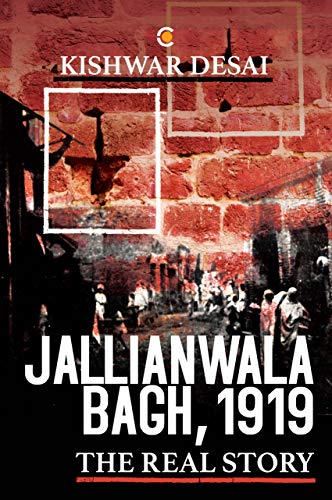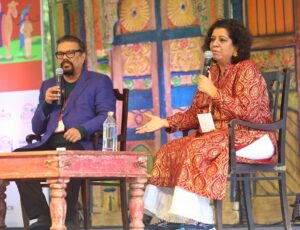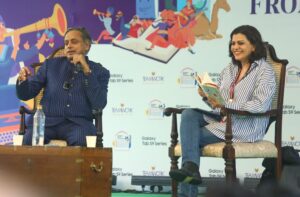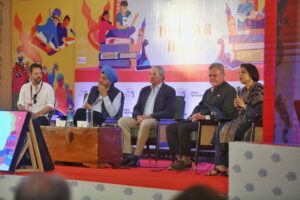Dyer was the red herring in British narrative of Jallianwala: Desai
3 min read
Author Kishwar Desai in conversation With Jagdeep Singh
Colonel Reginald Dyer was the fall guy for the British empire, which orchestrated the Jallianwala Bagh massacre in 1919. “Colonel Dyer was quite an ordinary person and I don’t think if he would have made history in any other way,” Kishwar Desai, author of the book Jallianwala Bagh, 1919: The real story, says with conviction why the army man from British stable was just a pawn in the power play of the insatiable colonisers.
In a stunning takedown of historical gospel, Kishwar Desai strips the modern-day ghoul, colonel Dyer’s, glamourised villainy as a clever ploy of the crafty British government to take the heat off the suffocatingly oppressive regime in India. It was on Dyer’s orders that innocent men, women and children were shot to death without provocation or warning on April 13, 1919, at the Jallianwala Bagh earning him the title of the Butcher of Amritsar.
The acclaimed author and columnist cites anecdotal and circumstantial evidence to clear the ado about colonel Dyer’s notoriety that left Amritsar with a thousand less lives in less than an hour of carnage. The official toll was put at 379, which Desai argues was not less than a thousand, as the survey was carried out by the British regime only in August that year. She is vocal and dismissive of the British making a black sheep out of colonel Dyer to prevent a sweeping generalisation in the aftermath of the horrifying Jallianwala killings.
“This was, as Mahatma Gandhi had repeatedly pointed out, the British system. There were several Dyers running around. Churchill (the then secretary of state for war) was shrewd enough to pin the blame on one person and absolve the administration of this unpardonable sin stating with great conviction this is not the British way,” the author says in conversation with history enthusiast Jagdeep Singh.
Her research revealed – she has scoured through first-hand documentations like the Hunter Report and eyewitness accounts – that the civil administration was clueless on Dyer’s role on that fateful day as was Dyer himself. Dyer apparently had moved in overnight and had left in a jiffy after his unprecedented Hydish barbarism that left a nation united and a world shocked.
Excerpts from Dyer’s biography also point to his lack of plotting and foresight in carrying out a horrifying act of mass murder on such scale. Kishwar reproduces a passage from his biography which is revealing of Dyer’s chance landing of an opportunity he exploited to satiate his barbaric drive built on years of colonial greed and supremacy.
“But this unexpected gift of fortune, this unhoped for defiance, this concentration of rebels in an open space… It gave him an opportunity he could not have devised. It placed them where he could wish them to be, where he could draw his sword,” she quotes Dyer’s biographer who had interviewed his widow.

Desai is unabashed in her drubbing of British colonialism, which bred the racist hatred and led to unchallenged persecution of the locals. “…Even if my husband (Lord Meghnad Desai) is in the House of Lords, colonialism was awful,” she tells an audience in splits. “The British had collaborators. They were not alone. They were being rewarded richly,” Desai says advocating, “It is time we started telling our own stories our way. There is a strong need to re-examine and retell contemporary history our own way. There’s a people’s history, which has been forgotten. We are hung up about the leaders like Nehru, Jinnah and others who played their part, no doubt, when the real heroes where the ordinary people and the local leaders who came to the rescue of fellow Indians.”
Kishwar Desai was in Jaipur to promote her new book on the shocking Jallianwala Bagh massacre that completes a centenary this year. The event was held at the Ashok Club on Saturday.






